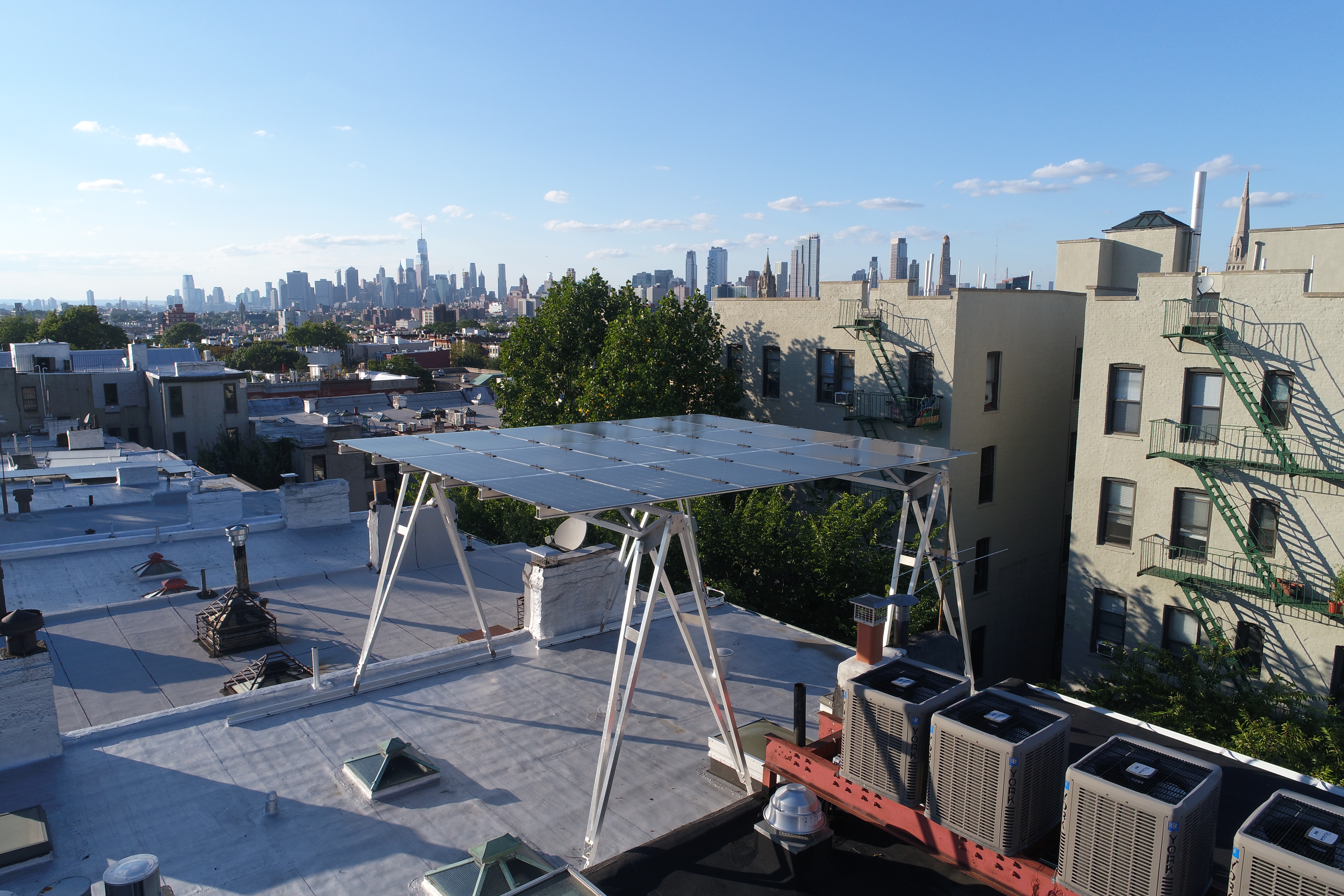George Bush Wants My Family to be Homeless
We have to admit we’ve been trying our best to block out the news over recent weeks of President Bush’s proposal to do away with the home mortgage deduction–we get a pit in our stomach whenever we think about it. Like many recent purchasers of homes in hot coastal markets (which, by no coincidence are…
We have to admit we’ve been trying our best to block out the news over recent weeks of President Bush’s proposal to do away with the home mortgage deduction–we get a pit in our stomach whenever we think about it. Like many recent purchasers of homes in hot coastal markets (which, by no coincidence are teeming with Liberals), elimination of this tax break would have a fairly drastic effect on our ability to stay in our home.
The pundits are talking about how such a change would bring home values down by 10-20%, but we think they are only taking into consideration the change in demand; in markets like New York, where many people have stretched over recent years to buy a home, the result could be much more dramatic on the supply side, as thousands of families could find themselves in the position of being forced sellers. The definitions of “rich” used to set the minimum hurdle rates for the small deductible portion of a mortgage that would remain are woefully out-of-whack with reality in cities like New York where most people spending $1 million on a home are far from wealthy. The larger impact on the economy–from a decline in real estate tax revenue to population decline–could be devastating under that scenario.
Let’s say someone earning $180,000 a year ($15,000 a month pre-tax, maybe $9,000 a month after) purchased a house at some point in the last few years for $1,250,000, putting down $250,000 and taking a $1 million mortgage. Let’s also say she’d gotten a 6%, 30-year mortgage, making her monthly payment roughly $6,000. For the sake of simplicity, let’s say taxes and maintenance, etc., add up to another $1,000.) Under current rules, her after-tax housing expense would be more like $5,000 than $7,000; the proportions get even more extreme if she has some rental income–maybe $3,500 versus $5,500. The difference in what’s left over to pay for groceries, utilities, tuitions, etc. is $5,500 versus $3,500–huge when you’re talking about a family of 4 or 5.
Now, we don’t think there’s any defensible intellectual reason that home ownership should enjoy the privileged status it does in our tax code, but to change the rules of the game at this point when millions of people have made the largest financial decision of their lives based on one set of ground rules would be a bait-and-switch of monster proportions. Some experts say the chances of these changes getting through are low, but, in the meantime, we’re going to have to go back to living in denial. The alternative is too much of a downer.
Goodbye, My Sweet Deduction [NY Times]





“Is home mortgage interest subject to the AMT?”
No, but state and local income taxes are.
“renters subsidize homeowners” – of course they do – someone owns the apartment they are renting. What a silly comment – and the proposal would not affect that dynamic at all – there is no benefit to renters in any way.
Currently, everyone who owns a home can the mortgage interest deduction. If you have a larger mortgage, it is because it is a more valuable house and you make more money. You also pay more in income taxes and property taxes than someone with a smaller income and less expensive house. It is all relative.
What concerns most people is changing the rules of the game for existing homeowners who based decisions, in part, on the tax benefits of owning your home. Yes, if you could by your home with all cash, this would not be a consideration, but in the real world, people do look at the net effect of the tax advantages when purchasing – whether it’s a $1 million or $150,000 house.
Is home mortgage interest subject to the AMT?
Tax laws change. Why should someone that buys a house get a mortgage interest deduction at the same time as the renter has to pay his rent from after-tax income? They both need a place to live in order to produce the income from which tax revenues are obtained. Really today’s system is one where renters subsidize homeowners. Seems logical that this should somehow be equalized. If it’s by killing the mortgage interest deduction, so be it.
Frankly, I when the tax system is simplified, the working class wins. The proposed tax form would be the size of an index card — front and back. Many of the loopholes would be closed, deductions across the board would removed, and it would be made more fair to people who can’t afford $10k ((or $400) for professionals to prepare their taxes.
And it’s true, I think deductions for $1mm mortgages are wrong.
I like that part where the owner in this scenario figures on 1K a month in taxes and maintenance, etc.
I guess the furnace never gives out and the heating bill never comes and pipes never break.
But seriously, who would do this? We’re told to save $600 a month per kid for college but only after fully funding our retirement (tax benefits for IRAs, etc. in proposed system are greatly expanded, thank god). In this scenario, this family spends their $3500 right there.
So we all know that these ideas would hurt us significantly. I quickly looked at myself and looks like would cost me extra couple thousand and I don’t have any mortgage interest. Perhaps even more $ with change in tax brackets that I saw in article yesterday but can’t find today.
So if ‘revenue neutral’ then who is benefitting?
Well, all those generous cuts for wealthy would be permanent and made even more generous.
Don’t get too narrowly focused on just the mortgage interest deduction – you could lose that debate with many people on that.
Look overall and see who benefits by this ‘revenue neutral’ idea – and you will see more skewing to investor class and
more screwing to wage-earners. Keep the debate focused on that issue.
couple points:
1. there’s no outright grandfathering in the panel’s recommendation. doesn’t mean that wouldn’t end up in any final legislation, but i would severely doubt any outright grandfathering.
2. the reason the panel didn’t “just” propose indexing it to inflation is because the panel was told to be revenue neutral. since indexing it to inflation now would cost revenue in the future, they have to offset that lost revenue somewhere. hence, this interest deduction change.
3. i agree with the sentiment that this isn’t likely to occur anytime soon, probably not before AMT really starts to affect more people (who would then feel the benefits of these changes). But as that happens and the need to change things is clear, this panel is the only official proposal on what to do and it will be an available solution and maybe a starting point for the debate. basically, its the opening salvo.
Finally I do think that its good for our government to consider painful solutions to real problems. i’m a new home owner in brooklyn and this would hurt, but i’m glad bush et al are at least looking at a real problem and coming back with fairly non political solutions (OK maybe blue state leaning, but still takes guts to propose it)
if you are taking out a 30 year mortgage you are screwing your I-don’t-care-how-many children. Buy something you can afford.